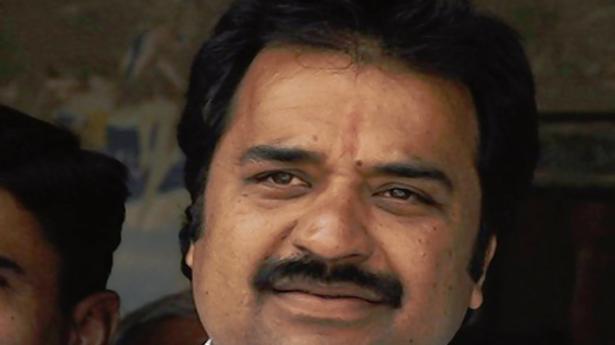
Kuldeep Bishnoi blames Congress for acting ‘selectively’over his Rajya Sabha vote
The Hindu
Kuldeep Bishnoi was expelled from all Congress posts for voting against its Rajya Sabha nominee Ajay Maken in Haryana.
Adampur MLA Kuldeep Bishnoi, who was expelled on Saturday from all Congress positions for voting against its Rajya Sabha nominee Ajay Maken in Haryana, has accused the party of acting “selectively” and blamed this approach of the party for being in “dire straits”.
In a series of tweets accompanied with the copy of the expulsion order, Mr. Bishnoi, a four-time MLA, said “Congress also has rules for some leaders and exceptions for others. Rules are applied selectively. Indiscipline has been repeatedly ignored in the past. In my case, I listened to my soul & acted on my morals…(sic).”
Tagging Congress’ official account, Mr. Bishnoi wrote that “Had @incindia acted this swiftly & strongly in 2016 & on every other critical opportunity they’ve missed, they wouldn’t have been in such dire straits”. Mr. Bishnoi was referring to cancellation of 14 Congress votes during Rajya Sabha election in 2016 facilitating the victory of BJP-backed Independent candidate Subhash Chandra, a media baron.
Mr. Bishnoi was upset with the party’s central leadership for not considering him for the post of Haryana Pradesh Congress Committee president during a reshuffle this past month. He had made his displeasure public over the party’s decision through a series of tweets then.
Congress’ Haryana In-charge Vivek Bansal said the party would approach the Legislative Assembly Speaker with a plea to cancel the membership of Mr. Bishnoi before expelling him from the party.
Haryana Chief Minister Manohar Lal, however, thanked Mr. Bishnoi and said that it was an opportunity for him to be part of the nation’s ideology. “He voted openly. He listened to his conscience. His vote must have been influenced by the policies and achievements of Modi government and our party’s ideology,” said Mr. Lal, speaking to mediapersons.
Amid the blame-game in Congress’ State unit over the vote of a Congress MLA declared invalid, Mr. Bansal told The Hindu that the legislator would be identified soon and action initiated against them. He said that the MLAs showed him their votes, but the MLA, whose vote had been declared invalid, seemed to have “hoodwinked” him. “Had I noticed any discrepancy, I would have pointed then and there. But it seems the MLA hoodwinked me,” said Mr. Bansal.

‘Instead of accusing Gen-Z of lacking skills or discipline, we need to ask what drives them’ Premium
At a recent event held in the city, Cambridge University Press & Assessment launched an advisory panel comprising leaders from top global corporations, aiming to bridge the employability gap in India and better align academic output with industry needs. A whitepaper released at the event highlighted the growing importance of communication skills, the need for stronger collaboration between industry and universities, and strategies to bridge the persistent skill gap.












